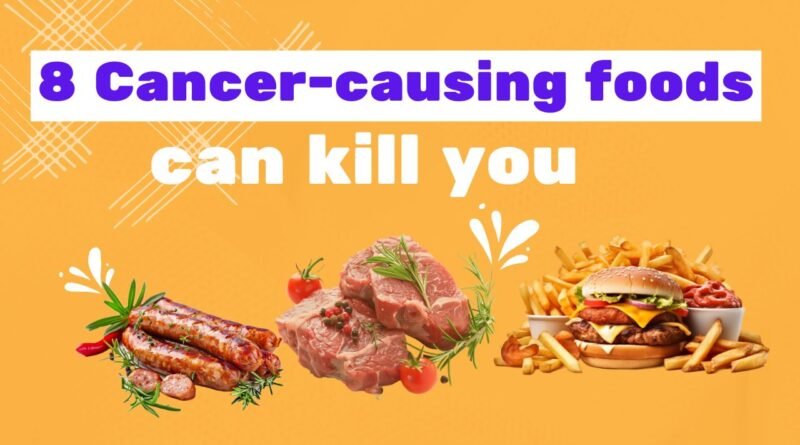8 Cancer-Causing Foods That Can Kill You
Nutrition experts have revealed eight common cancer-causing foods you should avoid to reduce your risk of cancer. While preventing cancer for those with a genetic predisposition may be beyond our control, for others, it is entirely possible. A healthy diet can help you avoid cancer risks. Here are ten foods that cause cancer or increase the risk of cancer that you should not eat too much.
1. Processed Meat
In 2015, the International Agency for Research on Cancer (IARC) of the World Health Organization (WHO) classified processed meat as a carcinogen. According to WHO, processed meat has been salted, cured, fermented, smoked, or processed in various ways to enhance flavor or improve preservation. However, some of these processing methods can create chemicals that have the potential to cause cancer. Most processed meats contain many chemicals and preservatives, such as sodium nitrate, to make the product look fresh and tasty. This is also a toxin found in cigarettes that causes lung cancer.
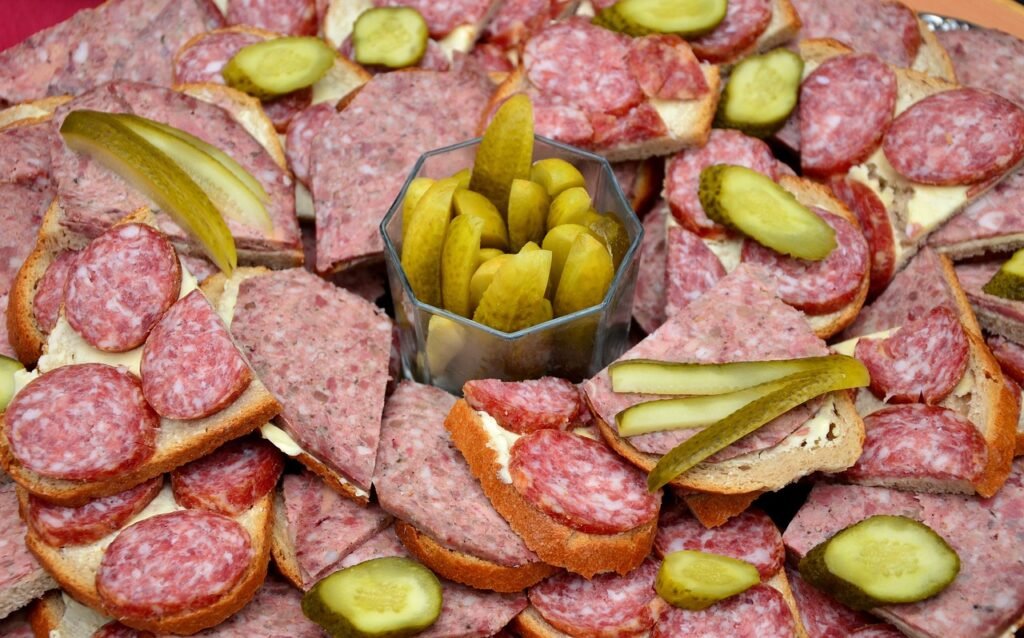
2. Potato Chips
Potato chips are one of the least healthy snacks because they are fried in trans fats and coated with salt. Frying potatoes at high temperatures forms carcinogenic substances such as acrylamide. This is the cause of cancer cases in the US. Even low-fat potato chips can contain the carcinogen acrylamide. Additionally, the excessive sodium content of potato chips can cause high blood pressure.

3. Alcoholic Beverages
In 2007, cancer research experts from the World Health Organization (WHO) reviewed scientific evidence from 27 different studies on the link between cancer and alcohol. They found ample evidence that excessive consumption of alcohol is a major cause of breast, mouth, esophagus, liver, bowel, and rectal cancers. To stay safe, you can drink one glass a day for women and two for men. A better alternative is to drink red wine, which contains resveratrol, a compound that helps fight cancer.
4. Salted Foods
Nitrates or nitrites in these salted foods act as preservatives and add appealing color to the meat. While nitrates do not lead to cancer, under certain conditions, they transform into N-nitroso compounds, which increase cancer risk. Studies have shown that eating these foods increases the risk of colorectal and stomach cancer.
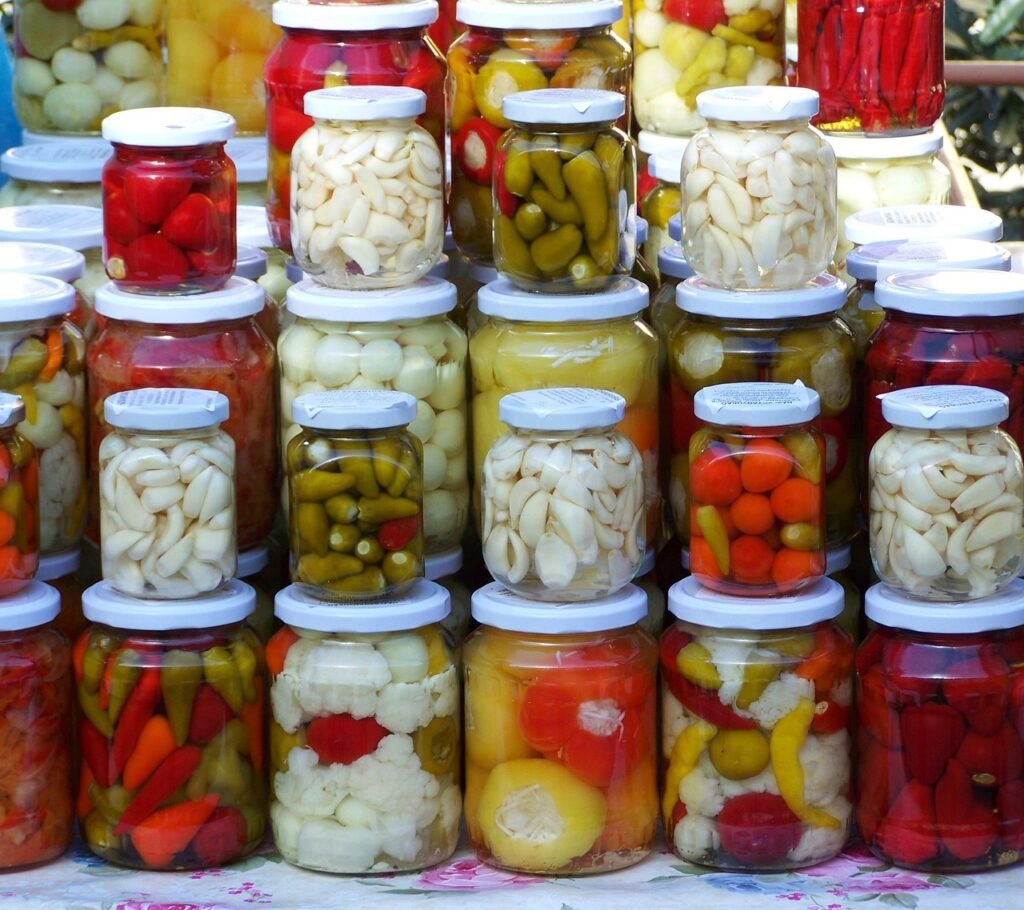
5. Red Meat
A 10-year study showed that a certain amount of red meat can increase the risk of cancer death by 22% in men and 20% in women. Doctors and other experts often advise limiting red meat intake. Reducing the amount of fatty red meat to a few meals a week significantly reduces cancer risk. When consuming red meat, avoid charring it, as cooking at high temperatures produces acrylamide, a known carcinogen.
6. Refined Sugar
Refined sugar is known to increase insulin levels and is the “favorite food” of cancer cells, stimulating their growth. The rising cancer rates are partly due to foods we commonly consume, such as sweets, cookies, sodas, cereals, and processed foods, all containing refined sugar.
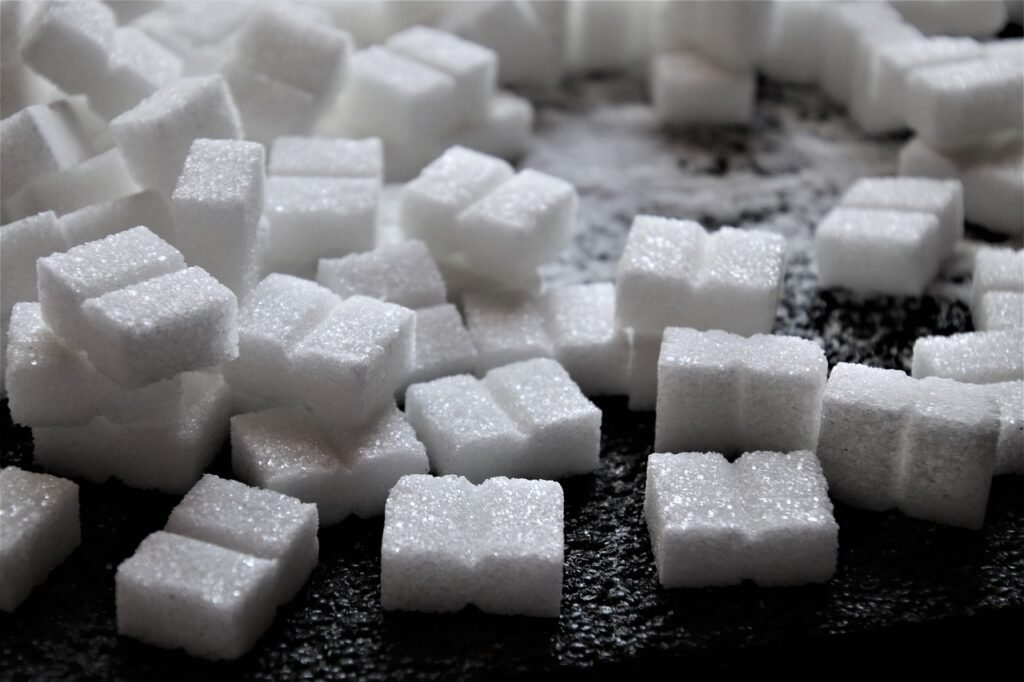
7. Non-Organic Fruits (Apples, Oranges, Strawberries, etc.)
Non-organic fruits are often contaminated with dangerous pesticides such as atrazine, thiodicarb, or high-nitrogen fertilizers. Pesticides are toxic chemicals harmful to both insects and humans. Apples are the most contaminated, with over 98% of apples tested containing harmful chemicals. Oranges, strawberries, and grapes follow with about 90%. In reality, we cannot entirely remove these chemical residues from fruits even after washing.
8. Moldy Foods
Many families cut off the moldy part of food and continue using the rest. However, moldy food produces aflatoxin, a carcinogen that increases the risk of liver and pancreatic cancer. Therefore, if food shows signs of mold, you should discard it immediately rather than trying to save it.
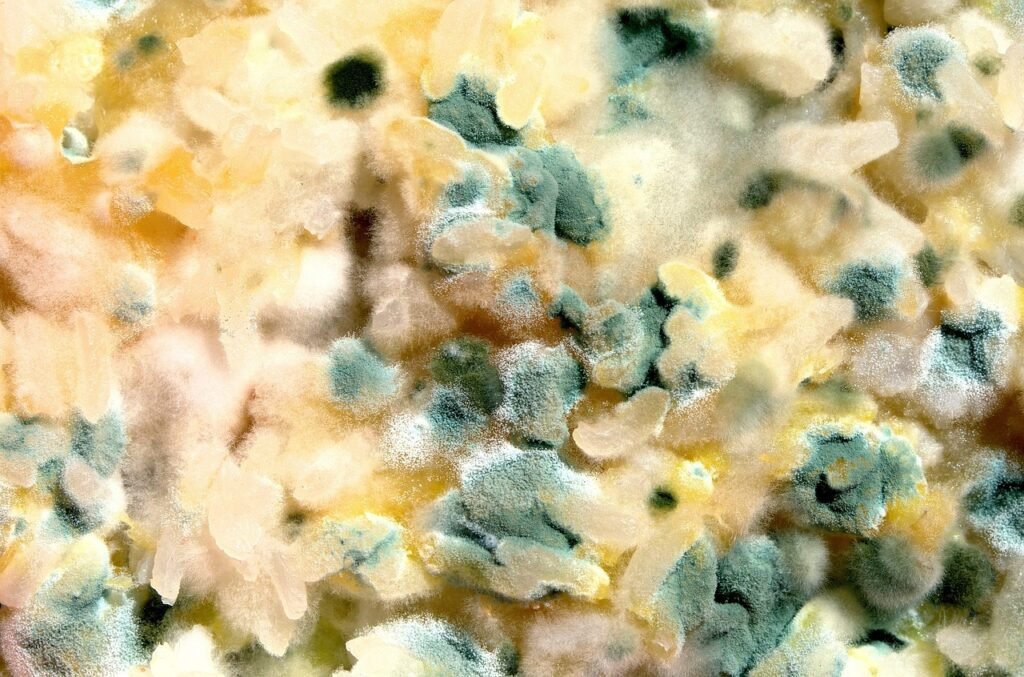
Cancer is currently the second leading cause of death in the US. One in four deaths is due to cancer. While we cannot completely eliminate the risk of developing cancer, limiting or avoiding cancer-causing foods in your diet is a simple and easy way to maintain health and reduce cancer risk.

